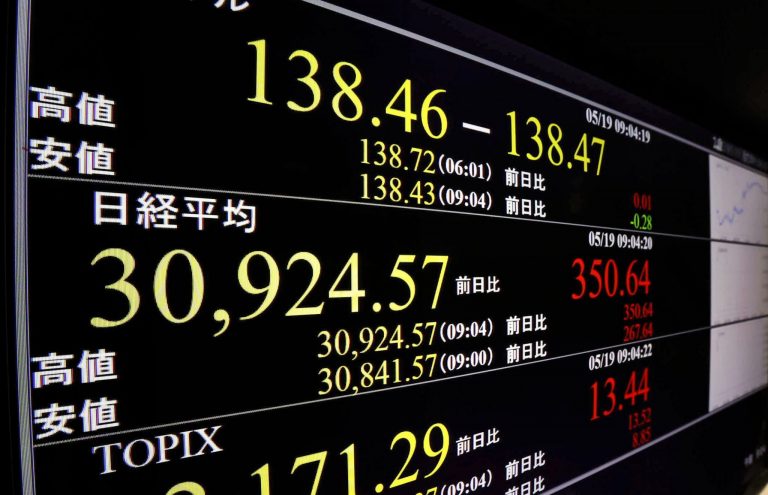
In a remarkable turnaround, Japan’s NIKKEI index experienced a significant rebound, closing over 10% up over the week. This surge comes as a breath of fresh air after a period of intense volatility and concern among investors. The NIKKEI, which is a benchmark stock market index for the Tokyo Stock Exchange, represents a wide array of industry sectors and is a critical indicator of the economic health of the region.
The rebound is particularly noteworthy given the index’s plunge the day before, which was one of the steepest in its history. Such dramatic fluctuations are emblematic of the current economic climate, where investor sentiment can shift rapidly due to various global factors, including geopolitical tensions, economic data releases, and market speculation.
The NIKKEI index’s steep decline was the result of a confluence of factors that rattled investor confidence and triggered a massive sell-off. Concerns over the health of the U.S. economy played a significant role, as investors reacted to data suggesting it might be in worse shape than previously thought. Additionally, the Bank of Japan’s decision to raise its benchmark interest rate contributed to the market’s unease, leading to a sharp unwind of the yen carry trade.
Register for Tekedia Mini-MBA edition 19 (Feb 9 – May 2, 2026): big discounts for early bird.
Tekedia AI in Business Masterclass opens registrations.
Join Tekedia Capital Syndicate and co-invest in great global startups.
Register for Tekedia AI Lab: From Technical Design to Deployment (next edition begins Jan 24 2026).
This carry trade, where investors borrow money in a country with low interest rates to invest in higher-yielding assets elsewhere, became less attractive as the cost of borrowing rose with a stronger yen and higher interest rates. The resulting sell-off was exacerbated by the need to repay these loans, adding downward pressure on the market.
Moreover, the volatility was amplified by a broader global sell-off, indicating a heightened sensitivity to economic indicators and central bank policies. The situation was described as a “perfect storm” of macroeconomic and market shocks, occurring at a time when risk assets were already considered overvalued.
The response of other Asian markets to the NIKKEI’s decline was a widespread downturn, reflecting the interconnectedness of global financial systems. The South Korean Kospi index experienced a significant drop, closing down 3.65%, marking its worst day since August 2020. This was primarily dragged down by banking stocks, while the small-cap Kosdaq plunged even further by 4.20%, reaching its lowest level since November 2023.
In Taiwan, the benchmark Taiwan Weighted Index was also affected, with a substantial decline of over 8%, driven down by tech and real estate stocks. Similarly, Australia’s S&P/ASX 200 fell 2.11%, retreating from its all-time high achieved just the day before. These movements indicate a domino effect, where a significant shift in a major market like Japan can lead to a broader regional impact.
Hong Kong’s Hang Seng index and mainland China’s CSI 300 also posted losses, though the CSI 300’s drop was the smallest in Asia, indicating a slightly more resilient performance amidst the sell-off. The widespread declines across Asian markets underscore the sensitivity of these markets to shifts in investor sentiment and economic indicators.
Investors and analysts will continue to watch these markets closely, as they can offer valuable insights into regional economic trends and potential future movements in the global financial landscape. For a more detailed analysis of the Asian market responses, further information can be found through financial news outlets and market analysis reports.
The bounce-back of the NIKKEI is a testament to the resilience of the Japanese economy and the confidence that investors have in its long-term prospects. It also highlights the dynamic nature of financial markets, where corrections can follow sharp declines as part of the market’s self-regulating mechanisms.
This event has had a ripple effect across global markets, with many indices in Europe and the United States showing signs of recovery in the aftermath of Japan’s rebound. The positive movement in the NIKKEI has provided a much-needed boost to investor morale, which had been dampened by the previous day’s losses.
Analysts will be closely monitoring the market’s performance in the coming days to determine whether this rebound is indicative of a sustained recovery or merely a temporary correction. Regardless, the day’s events have provided a fascinating case study on market dynamics and investor behavior.



